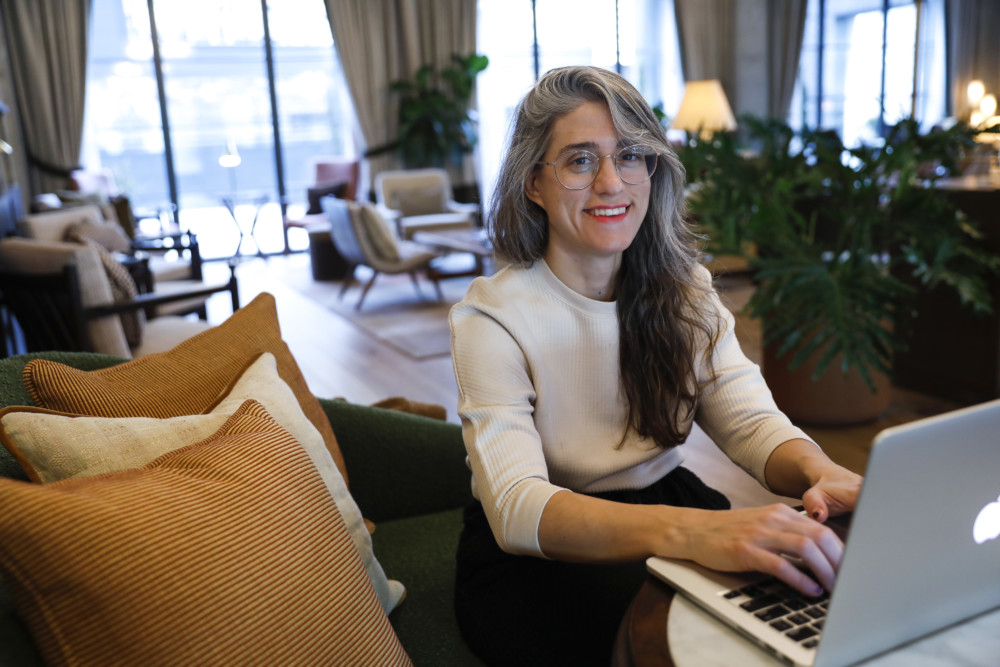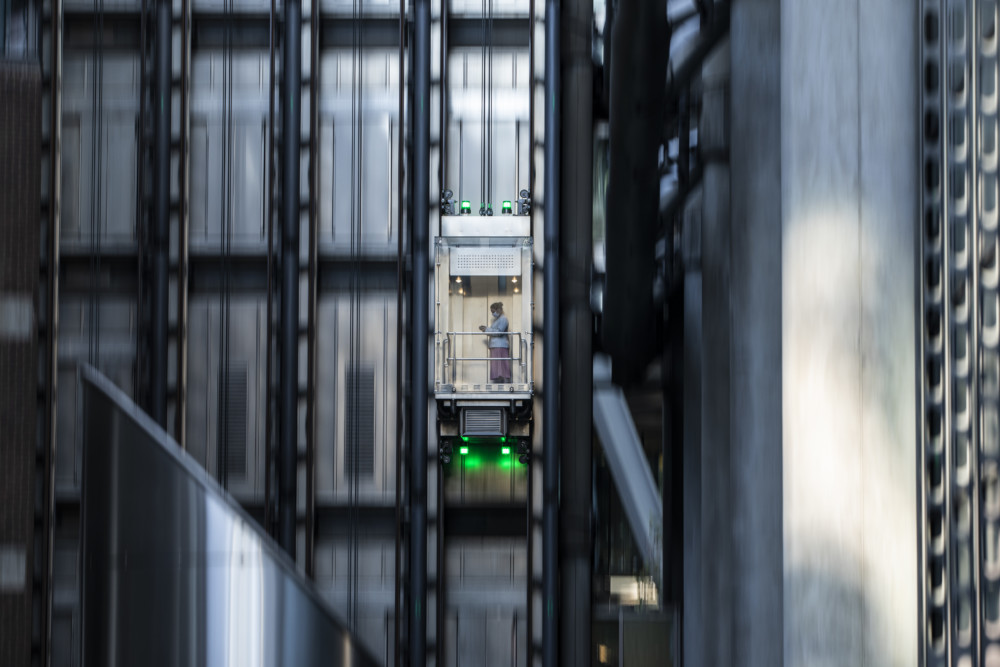By Corilyn Shropshire
Chicago Tribune
WWR Article Summary (tl;dr) While the 2019 headlines regarding “WeWork” may have dimmed the light on the allure of co-working, it does not look like the trend is going away anytime soon. As Corilyn Shropshire reports, “co-working’s upward trajectory continues but the industry is changing.”
Chicago Tribune
Shaniqua Davis is a seasoned co-worker — but not in the traditional sense, working alongside fellow employees or shooting the breeze at the office water cooler.
Davis, 29, is the new definition of co-worker — one who rents a desk alongside strangers, takes meetings on sofas in cozy common spaces and steps into a tiny phone-booth-like space when she needs privacy.
In the past two years in Chicago, she’s had plenty of locations to try as she builds her diversity recruiting business, Noirefy. Davis has set up shop at 1871, WeWork, Novel, came close to joining The Wing and now is back at WeWork.
Co-working, she said, has given her an office, an attractive and centrally located meeting space for clients and a venue for networking. She likes getting out of her home office a few days a week and having somewhere to be in the morning, and working in a space that doesn’t look like a traditional office.
“I’m a small company … I’m only one person. Usually people like me aren’t doing co-working spaces (because they are expensive), but I’ve figured out the kinks,” Davis said. “I love working in co-working spaces. It’s flexible.”
Davis’ experience illustrates the allure of co-working, a workplace phenomenon that has caught on with freelancers who want a communal table to sit at, entrepreneurs looking for a space to take meetings and large corporations trying to free themselves from long-term leases and expensive office remodels.
WeWork’s internal strife aside, co-working’s upward trajectory continues but the industry is changing. Big shared office space players like WeWork and Industrious are blanketing chosen cities with locations or acquiring competitors. Regus, which outnumbers its competitors in co-working locations around the world fourfold, is making investments to keep up with current trends.
Meanwhile, newcomers to the shared office space industry are moving away from the one-size-fits-all approach and going after specific niches.
Changing demographics are on the industry’s side. By 2025, 40% of working-age individuals will work as freelancers or independent contractors or for a small organization, according to Robert O’Brien, a global real estate and construction expert at Deloitte.
“One of the things that has really driven growth in co-working has been changes to the workforce,” he said. “The fact that there are more freelancers and virtual workers and people who can work for an organization of any size, but work from a distance.”
At the end of November, Chicago had 94 co-working spaces occupying about 3.4 million square feet. By the end of this year, that number is expected to jump to 163 spaces and 4.2 million square feet, according to a report from Newmark Knight Frank and Chicago Creative Space.
Amenities and services are increasingly important in the co-working arms race. The offerings depend on the clientele co-working operators are wooing: blow-dry salons, yoga studios, child care, laundry services, nice bathrooms and showers, wine, beer and chic networking events are all designed to keep tenants happy and paying rent. Members of Working From, Fulton Market at the Hoxton can grab a $25 discounted room at the luxury hotel.
“It’s all about creating a great tenant experience,” said Deloitte’s O’Brien. “You’re basically taking what hospitality organizations have tried to do by creating a great guest experience and now applying it to co-workers in a work environment.”
An awareness of what certain tenants are craving is part of what led Alicia Driskill to found EvolveHer, a women-only co-working space in the Loop that offers events to help women mentor and be mentored, child care through a partnership with another business and a podcasting studio. Co-working “is just going to continue to grow,” Driskill said. “Giant corporations and organizations and gyms, hotels … everyone is building out workspace toward saturation and there’s a demand for personalization.”
Co-working operators will home in on a niche because “it’s not just about the space but the impact you can create,” Driskill said.
Co-workers want to be part of a community, and the search for one will drive the growth of co-working locations, Deloitte’s O’Brien said. “They feel connected to it and they are disciples, helping the community grow,” he said.
Operators “will focus more on the user experience, differentiating themselves from their competitors and using technology to understand what their customers want and how to operate efficiently,” O’Brien said.
Anna Cerniglia’s experience as she connects with new artists and artwork is what drew her to Working From Fulton Market at the Hoxton Hotel in the Fulton Market district.
The art consultant and entrepreneur gravitated toward the 2-month old space for its high-end design, comfort and quiet. The in-house design team curated the co-working space with custom-designed soft lighting, contemporary furniture in warm tones and high-gloss cabinets and brass fixtures in the kitchens. There’s a yoga studio and beverages for sale, like wine and beer.
“I feel very special here,” she said. “When I go to another space and they have a restaurant, I’m always regretting how much I spend. … I feel like here, they are kind of helping you. You can just get a free cup of coffee when you want.”
Cerniglia likes co-working so much that she has started her own space, Art/Work, in the West Town neighborhood geared specifically to people who work in servicing the art industry.
The rise of newcomers is prompting companies with longer roots to adapt. IWG, the parent company of industry mainstay Regus, which has locations all over the world, is launching a new brand of short-term high-end rentable office spaces called No18. In Chicago, the space will be located on the top two floors of 110 N. Wacker and, according to its website, will be a “cosmopolitan” space filled with “quirky furniture and chic art” for members.
An in-house report by Regus found flexible workspaces and co-working could bring $127 billion to local economies in the U.S. over the next decade. “It’s important to always remain relevant,” said Michael Bennett, vice president of network development at IWG, which owns Regus. “The focus is always going to be around a professional work environment that’s coupled with an interesting experience.”
Industrious, which now has six locations in Chicago after acquiring the three Assemble locations in 2018, has started a new brand, Canvas, designed for companies with 20 to 200 employees. “They are designed for Fortune 500 companies who might be opening in new markets to move into co-working spaces rather than sign new leases,” said Marie Adrian, Industrious’ Midwest regional manager.
While cool amenities and services are important, co-working operators also need to make money, which has led several operators to team up with landlords. Co-working businesses get a partner to help share the costs, and landlords get access to a pipeline of future tenants who may need more space as their businesses grow.
For most entrepreneurs, picking which space to settle down in is a matter of both the finances and the feel of the space.
Teddy Heidt, who runs The Gauge Collective, a digital marketing freelance community, left WeWork and recently settled at Working From, Fulton Market because he found it quieter, more communal and offered a more affordable and flexible leasing arrangement, he said. “It’s more open here and pushes us to be more communicative and social with each other,” Heidt said. “I don’t work with the people around me, but we’ve turned this into a type of cohort where we refer each other to people who may be interested in our work.”
Vanessa Abron, who runs Agency Abron, a public relations, marketing and communications firm, said despite the slight uptick in rent in the three years she’s been at WeWork, she’s staying the course with the co-working space where, ironically, she’s already put down some roots.
Abron, who works from the River North WeWork location, feels “light and airy, like I can take on the world,” when she walks to her desk in the morning. WeWork allows her to bring in the dog, Millie, she often takes care of for a friend. She regularly hosts networking events in the space and hangs out in the common area where she meets other “co-workers” who have helped her with her business.
But it’s not all perfect, she said. “I do hate that they got rid of the beer and no one will tell me where it went,” she said. “I can’t get a consistent answer.”
___
Distributed by Tribune Content Agency, LLC.

















































































































































































































































































































































































